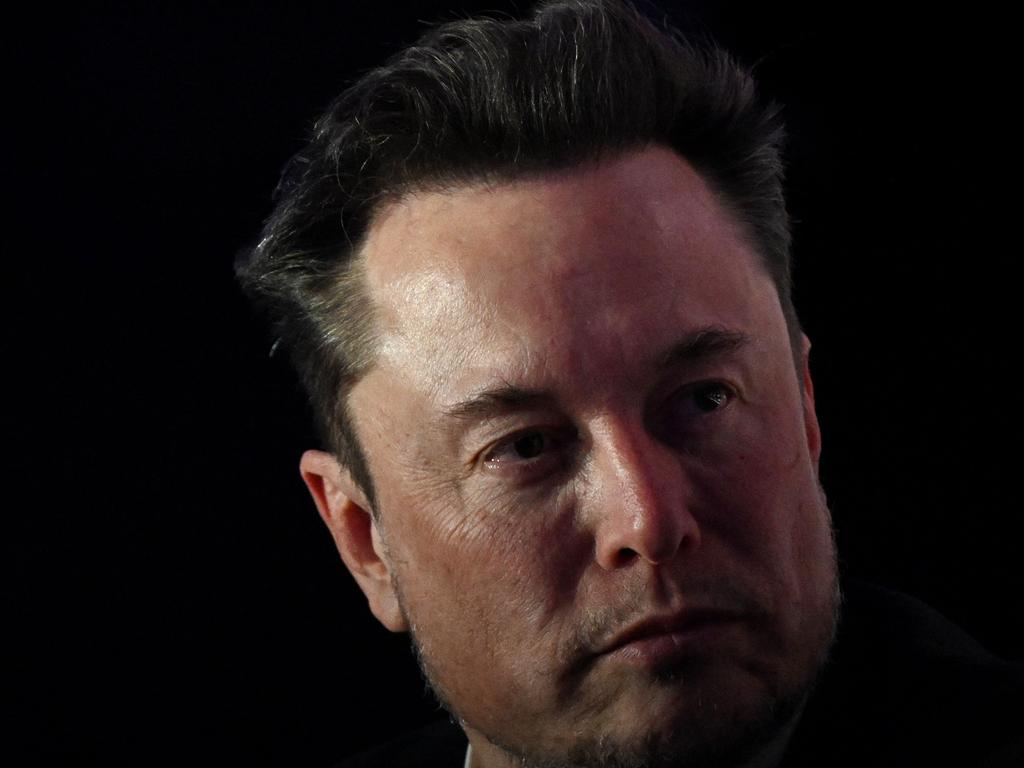Backlash for Elon Musk: unity on calls to rein in social media
Cyber experts are urging the Albanese government to overhaul its online safety laws and increase penalties for social media giants that refuse to comply with orders to remove harmful content.

Cyber experts are urging the Albanese government to overhaul its online safety laws and increase penalties for social media giants that refuse to comply with orders to remove harmful content, amid growing political consensus that further reforms are needed.
The nation’s first eSafety Commissioner, Alastair MacGibbon, said the “time had come” for digital platforms to face the same regulation as traditional media, calling on Labor to amend the Online Safety Act to include a mandatory code of conduct to compel tech companies to comply with Australian law.
Mr MacGibbon was among several experts backing stronger laws on social media platforms to crack down on the spread of violent or extremist material, but there are also calls for any legislative changes to “strike the right balance” to avoid curtailing free speech.
The push comes as the Elon Musk-owned X Corp, formerly known as Twitter, is pursued in the courts by the current eSafety Commissioner, Julie Inman Grant, for allegedly refusing to take down footage of last week’s alleged terrorist stabbing in western Sydney.
The eSafety Commissioner on Monday night won a Federal Court interim injunction requiring X to hide the video of the stabbing of cleric Mar Mari Emmanuel until at least Wednesday, with the body seeking further action to make this permanent. Monday’s Federal Court decision provoked a barrage of critical posts from Mr Musk, branding the outcome censorship and sarcastically praising Anthony Albanese for demonstrating that his platform was the “only truthful one”.
The Prime Minister accused the billionaire of believing he was “above the law, and above common decency”. He denied that the decision was an act of censorship, saying it was a commonsense act to protect the public from distressing content that will stoke “social division”. “This has been a distressing time, and I find this bloke on the other side of the world, from his billionaires’ establishments, trying to lecture Australians about free speech, well, I won’t cop it and Australians won’t either,” he said.
With the videos still able to be accessed on the X platform on Tuesday, the eSafety Commissioner applied for a permanent injunction and civil penalties of up to $782,5000 against the social media company.

“eSafety expects a further hearing to take place in the coming days during which the court will be asked to decide whether it will extend the interim injunction,” an eSafety Commissioner spokeswoman said.
“It is expected this second hearing will be followed by a final hearing at which eSafety will seek a permanent injunction and civil penalties against X Corp.”
Mr Musk on Tuesday claimed X had already taken steps to censor the content in Australia, and flagged he was preparing a legal challenge to the interim ruling.
Communications Minister Michelle Rowland backed the eSafety Commissioner, declaring that “it doesn’t matter who you are, if you operate here, you need to comply with Australian law”.
Opposition communications spokesman David Coleman said the Coalition was “very open” to hearing suggestions of how to improve online safety laws, calling on the government to act on the eSafety Commissioner’s recommendation to trial age verification on social media.
He also responded to Ms Rowland’s renewed commentary around the need to pass legislation to combat online misinformation, saying that the Coalition would carefully consider new legislation when it was released but would not allow freedom of speech to be undermined.
Victorian independent senator Ralph Babet was condemned by the Albanese government after using X to post an unedited video of the Sydney church stabbing, alongside the comment: “to the Australian government and the eSafety commissioner, go f..k yourselves”.
Tasmanian independent senator Jacqui Lambie said it was important politicians led by example when it came to X, and revealed she had deleted the platform.
Law Council of Australia president Greg McIntyre cautioned against expanding the criminal sanctions on social media platforms without close scrutiny, adding that he believed “criminalisation should not be conceived as the primary tool through which to prevent radicalisation and extremism from propagating”.
Mr MacGibbon said the government had an “obligation to protect its citizens” from online harm, arguing that the voluntary industry code would not be effective and the onus should be flipped on tech giants to prove they’re complying with the law.
“They need to codify the code, they need to make it regulation for these entities,” he said.
“They have to take down content when notified, that they have to care about things like defamation, that they have to care about things like online child sex abuse.
“They can’t just do their best efforts or say, look, if you bring it to our attention, we’ll compare it to our own little rules on our website, and we’ll make a determination.
“No, there is a regulator in this country that has the legal power to determine when something is considered to be egregious.”
Cyber Security Cooperative Research Centre chief executive Rachael Falk said enforcing Australian laws on overseas social media platforms was difficult especially when it clashed with America’s First Amendment enshrining free speech.
She suggested the sharing of abhorrent violent material amendment to the criminal code could be expanded to cover harmful content broadly, not just material that was captured by the perpetrator, and ultimately platforms should be banned if they don’t comply.
“Finally, if we are unable to regulate these platforms – or they refuse to be regulated under Australian law – then consideration should be given to whether they should be able to operate in Australia at all,” she said.
“In a liberal democracy, governments are elected to help design guardrails, like legislation, that reflect the society we want to live in.”






To join the conversation, please log in. Don't have an account? Register
Join the conversation, you are commenting as Logout